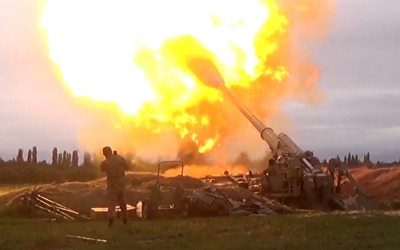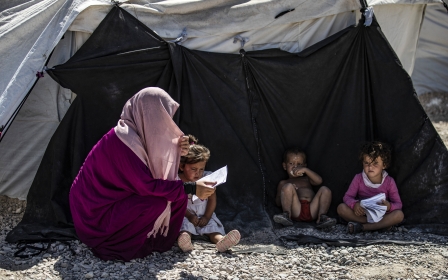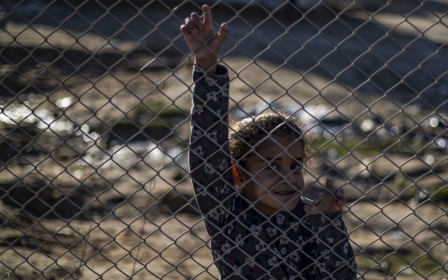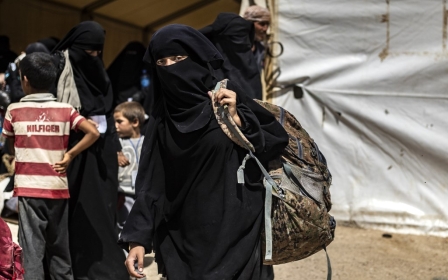Kurdish authorities to remove Syrians from overcrowded al-Hol camp, leaving foreigners
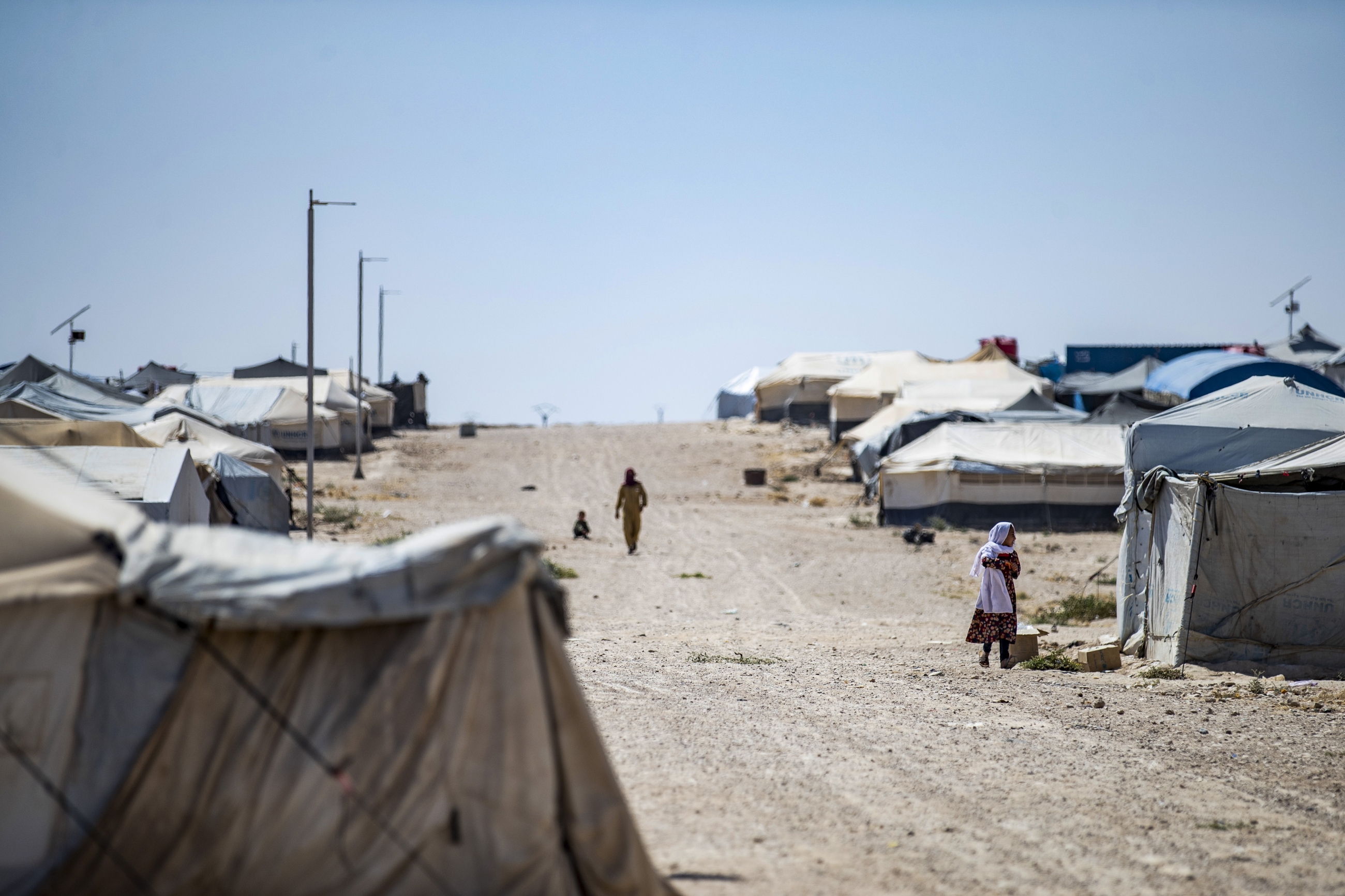
Authorities in northeastern Syria have said they will remove Syrians from the al-Hol displacement camp, and relinquish any responsibility for foreign nationals being held there.
The Kurdish Autonomous Administration of North and East Syria, also known as Rojava, said that the overcrowded camp, which currently houses about 68,000 people, including nearly 43,000 children, was proving to be a "heavy burden" that they could no longer manage.
'The self-administration does not have to pay exorbitant sums in order to provide these people with food and other things'
- Ilham Ahmed, Syrian Democratic Council
“A decision will be issued to empty the Syrians from the camp completely. Those who remain in the camp will not be the responsibility of the self-administration,” said Ilham Ahmed, president of the executive committee of the Syrian Democratic Council (SDC), on Sunday.
“The self-administration does not have to pay exorbitant sums in order to provide these people with food and other things," said Ahmed.
"Besides the problems that arise daily including assassinations, rape and so on."
New MEE newsletter: Jerusalem Dispatch
Sign up to get the latest insights and analysis on Israel-Palestine, alongside Turkey Unpacked and other MEE newsletters
Al-Hol has been used to hold thousands of people who fled from or were swept up in fighting between Kurdish-led forces and Islamic State fighters as the militant group lost control of territory it had previously held in northeastern Syria in 2019.
Many residents, among them several thousand foreign nationals, are suspected of links to IS.
Local officials have reported several incidents of IS followers attacking guards or aid workers in al-Hol in recent months, or attempting to escape.
Human Rights Watch has described the camp as having "filthy and often inhuman and life-threatening conditions".
'Least radical' transferred
Last month, the administration said it was transferring the "least radical" foreign women and children out of al-Hol to begin rehabilitation.
Western countries have been urged by Kurdish authorities and by the United States, which spearheaded the international coalition against IS, to take responsibility for their own citizens being held in the region.
The US last week said it had repatriated the last of 27 Americans known to be in Syrian custody, charging four men with supporting IS.
"The United States continues to lead by example by working with the Syrian Democratic Forces to repatriate American citizens accused of supporting ISIS and, where appropriate, prosecuting their alleged crimes in American courts,” said Ambassador Nathan Sales, State Department Coordinator for Counterterrorism.
“We call on other nations, particularly in western Europe, to take responsibility for their citizens."
Italy also last week charged a woman repatriated from Syria with her three children, but many western countries have been largely reluctant to repatriate their own citizens.
Beatrice Eriksson, a spokesperson for Repatriate the Children Sweden, told Middle East Eye: "The decision made by the Autonomous Administration shows that the situation is unsustainable and urgent action must be taken by each government that has citizens stranded in the area."
Repatriate the Children Sweden is part of an international network of campaign groups calling on governments to bring home children and other nationals being held in the camp.
Eriksson said there was estimated to be about 25 women, 10 men and 50-70 Swedish children still in Kurdish custody in Syria.
She also cited comments by General Kenneth McKenzie, the US's military commander in the Middle East, who warned of the danger of an IS resurgence if the issue of the detainees was not resolved.
"The fact that Italy repatriated citizens last week shows that the window for repatriation still is open. However, it can soon be too late. In this issue humanitarian principles, rule of law and perspective of global security must be united," said Eriksson.
Middle East Eye delivers independent and unrivalled coverage and analysis of the Middle East, North Africa and beyond. To learn more about republishing this content and the associated fees, please fill out this form. More about MEE can be found here.


